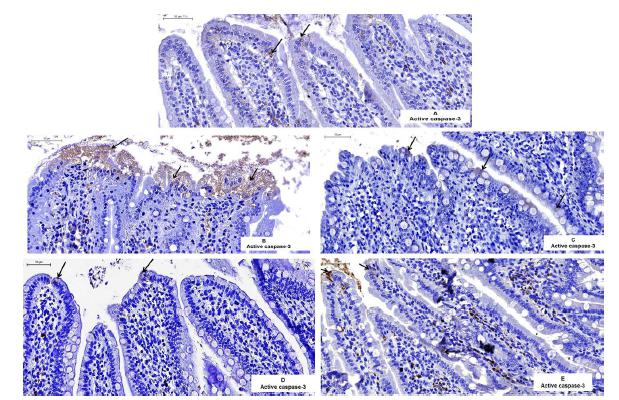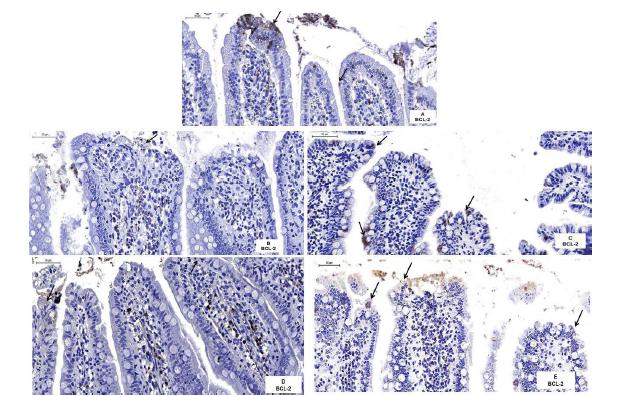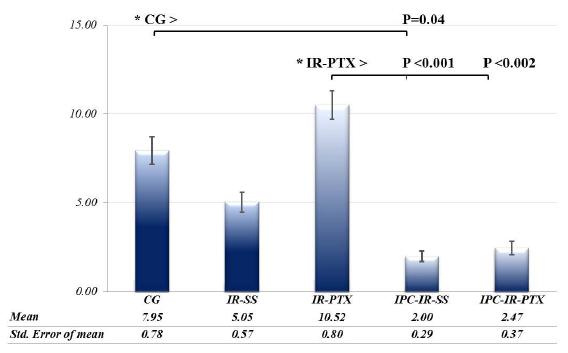Abstract
Purpose:
To investigate the expression of nitric oxide synthase (NOS) and apoptosis associated with ischemic preconditioning (IPC) and pentoxifylline (PTX) in intestinal ischemia (I) and reperfusion (R) injury.
Methods:
Thirty male rats were assigned to 5 groups: (CG), no clamping of the superior mesenteric artery (90 minutes); (IR-SS) saline + ischemia (30 minutes) + reperfusion (60 minutes); (IR-PTX) PTX + ischemia (30 minutes) + reperfusion (60 minutes); (IPC-IR-SS) 5 minutes of ischemia + 5 minutes of reperfusion (IPC) + saline + I(30 minutes)+R(60 minutes); and (IPC-IR-PTX) IPC + PTX + I(30 minutes)+ R(60 minutes).
Results:
The application of IPC and PTX showed a significantly lower immunohistochemistry reaction for active caspase-3 (P<0.05) compared to IR+SS. The number of cells immunoreactive to BCL-2 was higher in the IR-PTX group (P>0.05). The NOS-2 expression (qRTPCR) in the IR-PTX group (P<0.05) was higher than the values for the IPC+IR-SS and IPC-IR-PTX groups. The NOS-3 expression was significantly upper in the IPC-IR-PTX group than in the CG (P<0.05), the IR-SS (P<0.05) and the IR-PTX (P<0.05) groups.
Conclusions:
The BCL-2 and active caspase-3 showed beneficial effects on PTX and IPC. The expression of NOS-2 and NOS-3 in the IPC and IPC-PTX groups showed no synergistic effect.
Key words:
Ischemic Preconditioning; Pentoxifylline; Ischemia; Reperfusion Injury; Nitric Oxide Synthase; Apoptosis; Rats.






